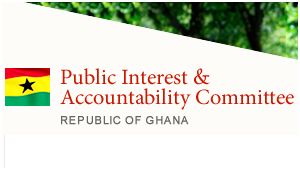Speaking at the ceremony, Mrs Quartey reiterated Government’s commitment to ensuring that PIAC’s significant role in ensuring transparency and accountability in the management of petroleum revenues in the country was enhanced.
Prof. Buah-Bassuah said PIAC had seen some successes, namely strengthening and monitoring the collection and utilisation of petroleum revenue to safeguard the growth of the industry for the country’s development.
He mentioned some of PIAC’s activities as exploring the potentials in the equitable distribution of the resources, accommodating different opinions from various stakeholders, as well as civil societies and other interest groups and also leading the public to appreciate and understand the variations in petroleum pricing and its implications on the revenue-spending trends for the recovery of the national economy.
“Through the above-mentioned activities, the committee has made significant contribution to policy-making on the prudent management and oversight of the oil and gas revenues,” he stated.
PIAC Challenge
Since the creation of the Public Interest and Accountability Committee (PIAC) to monitor compliance with the law by institutions that have mandate for the management of Ghana’s petroleum revenues, funds to finance operations has been a major challenge.
The lack of funds have stalled activities of the committee aimed at carrying out its role effectively. Its ability to issue reports within stipulated time is also under threat as the funds that will enable it do this is not available.
Recently, the committee was ejected from its offices for lack of funds to renew its rent; something experts say was a slap in the face of our resolve as a country determined to protect the integrity of our oil wealth.
It is, therefore, welcoming for the government to provide PIAC, which was created by the Petroleum Revenue Management Act (PRMA) 2011 (Act 815) with a vehicle to enable it conduct independent assessment of the uses to which petroleum revenues are put and to protect public interest.




